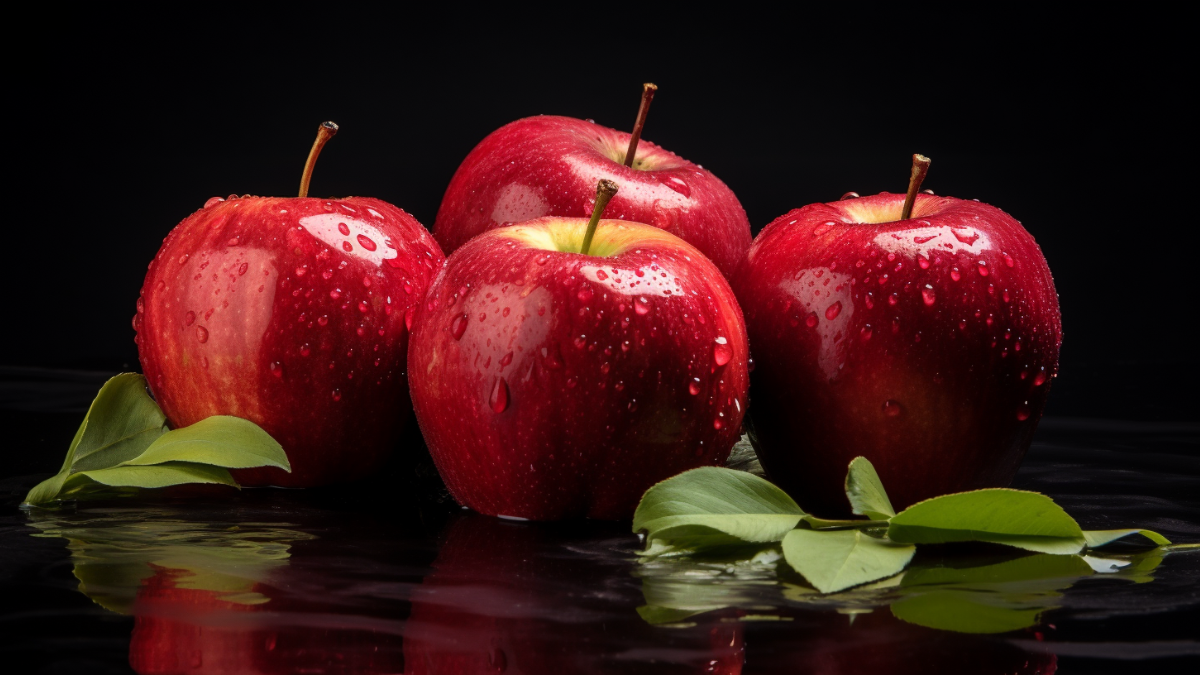The All-Time Favorite Apple
When it comes to fruits, few can rival the popularity of the humble apple. Crisp, refreshing, and available in various mouthwatering varieties, apples have been a favorite snack for people of all ages and cultures. But have you ever wondered if an apple is truly a fruit, or if it falls into a different category altogether? In this article, we’ll delve into the juicy debate and uncover the truth behind the age-old question: is an apple a fruit?
The Botanical Definition: Apples as Fruits
From a botanical perspective, there’s no doubt about it – apples are, indeed, fruits. Fruits are the mature ovaries of flowering plants and contain seeds that can develop into new plants. When it comes to apples, the core of the fruit houses the seeds, while the fleshy part that we love to eat is the mature ovary. So, if we’re going strictly by botanical definitions, there’s no question that an apple is a fruit.
The Culinary Conundrum: Fruits vs. Vegetables
While the botanical definition settles the matter, the culinary world introduces a twist to the debate. In everyday conversation, we often classify fruits and vegetables based on their taste and culinary use. This is where the waters get a bit murky for apples. When used in savory dishes, such as salads or as part of a stuffing, apples can take on a more vegetable-like role. Some even consider them a “culinary fruit” due to their versatile use in both sweet and savory dishes.
Nutritional Powerhouse: The Apple Advantage
Whether you consider it a fruit or a culinary wonder, there’s no denying the nutritional power packed into every apple. Apples are a rich source of dietary fiber, vitamins (particularly vitamin C), and antioxidants. They are low in calories and fat, making them an excellent choice for those seeking a healthy and tasty snack. Whether you enjoy them fresh, baked into a pie, or blended into a smoothie, apples offer a host of health benefits that make them a true superstar in the world of nutrition.
From Blossom to Bite: The Apple’s Life Cycle
The journey of an apple, from a delicate blossom to a crunchy delight, is a captivating tale of nature’s wonders. It all begins in the spring when apple trees burst into a profusion of blossoms. These blossoms are pollinated by bees and other insects, leading to the development of tiny fruits. As the fruits grow, they undergo various stages of maturation until they are ripe and ready for harvest. From the orchard to the grocery store, and finally to your kitchen counter, each apple’s life cycle is a remarkable journey.
An Apple a Day: Myths and Legends
Throughout history, apples have been wrapped in myths and legends. From the tempting fruit in the Garden of Eden to the famous story of Sir Isaac Newton’s discovery of gravity, apples have found their way into countless tales and folklore. In various cultures, apples have symbolized love, beauty, and even immortality. So, whether we consider them a fruit or a symbol of timeless wisdom, apples have left an indelible mark on human culture.
Conclusion: A Fruitful Conclusion
As we conclude the debate on whether an apple is a fruit, it’s evident that from a botanical perspective, apples fall squarely into the category of fruits. However, when considering their versatile use in both sweet and savory dishes, they take on a culinary dimension that makes them truly unique. Regardless of how we classify them, there’s no denying the delight and nourishment that an apple brings to our lives. So, whether you enjoy them as a simple snack or use them to elevate your culinary creations, let’s raise a glass (or rather, an apple) to the fruit that has captivated our taste buds and hearts for centuries.



